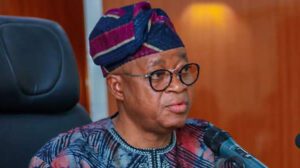COVID-19: SON warns against under-dispensing of medical gases
Malam Farouk Salim, Director-General of the Standards Organisation of Nigeria (SON), has warned gas plants and dealers against under-dispensing of oxygen and other medical gases as the nation grapples with the COVID-19 pandemic.
Farouk, who gave the warning in a statement on Monday in Abuja, said inadequacy in volume and dosage of oxygen and other medical gases affects the treatment of patients in the country.
He, therefore, advised gas plants across the country to take accurate volume in the sale of oxygen and other medical gases to customers as a matter of responsibility.
He also urged health institutions and practitioners to check the pressure of oxygen and other medical gas cylinders for strict compliance with specifications.
“Oxygen is a critical product in the treatment of respiratory ailments in emergency situations, particularly in the management of the COVID-19 pandemic.
“SON offices across the 36 states and the FCT have been directed to ensure close monitoring and strict compliance with standards of volume in the sale of oxygen and other medical gases by gas plants.
“Any gas plant or dealer found to be under-dispensing oxygen or other medical gases would be made to face the full weight of the law as enshrined in the SON Act No. 14 of 2015.” Salim said.
The SON Chief Executive also stressed the need for oxygen and other medical gases to be used by only certified medical personnel in recommended volumes and dosages for effective treatment.




